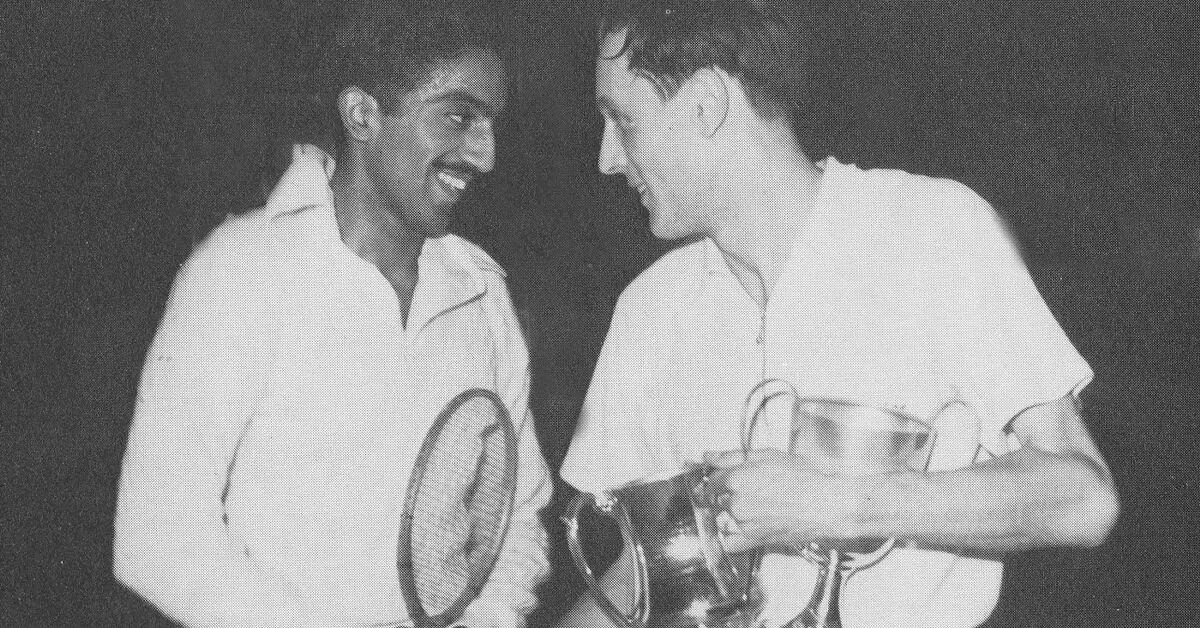Badminton
Before Padukone, there was Prakash Nath, who had dared to win All England Championships
33 years before Prakash Padukone won the All England Badminton Championships, Prakash Nath had reached the final of badminton's most prestigious event.

Prakash Nath reached the final of the All England Open Badminton Championships in 1947 (Source: National Badminton Museum)
The All England Open remains to be the world's oldest badminton tournament. Since it was introduced in 1899 by the Badminton Association of England, it has become a prestigious tournament held in high esteem by players and fans. Arguably, the All England title is arguably the most coveted on the BWF World Tour.
Indian badminton players have seen limited success in the hallowed tournament, which is often referred to as the 'Wimbledon of Badminton'. It was in the year 1980, an Indian first conquered the title when Prakash Padukone emerged as the champion in the men's singles event, defeating one of the best players of the era Liem Swie King. The feat was repeated 21 years later when Pullela Gopichand emerged victorious in 2001, marking the beginning of India's new badminton history.
While time and again we revel in the achievements of the two stalwarts - Padukone and Gopichand, India barely remember its other 'Prakash' who had dared to conquer the title and reached the final of All-England Open 33 years before Padukone had won it.
The ferocity of World War II had halted the All England Tournament for a span of six years between 1940 and 1946. As the tournament resumed after seven years in 1947, a 23-year-old Prakash Nath was the Indian name who progressed to the final of the tournament. The journey to the final remains one of the most dramatic episodes of Indian badminton to date.
The 1947 Championships were the first to be played after the cessation of World War II. Owing to the war that ravaged entire Europe, there were no records available that could determine the seedings of the players. As a result, the seedings were allotted arbitrarily based on the players' performances in the pre-war era.
India got the opportunity to send two entries in the tournament and they decided to go with their two best players - the 1946 national badminton champion Prakash Nath and his toughest compatriot but good friend Devinder Mohan. It was Prakash who had defeated Mohan in the finals of the 1946 nationals. Strangely, both the Indians were placed in the same quarters draw.
Prakash, who hailed from Lahore (pre-partition), probably faced the most gruelling competition of the tournament in his opening match against defending champion Tage Madsen of Denmark. Over 25,000 turned out at the Harringay Arena to watch Madsen play. Madsen took the first game 15-7. However, the audience were left astonished when Prakash pulled off a magnificent comeback, winning the second game 15-12. Into the decider and Prakash blasted past Madsen to win the tie 15-3.
In the second round, Prakash eased past Ireland's Tod Majury 15-7, 15-11. Both Prakash and Mohan progressed smoothly until they came up against each other in the quarter-finals. Both the players were aware of the fact that it would be an extremely close competition, and beating each other would be an exhaustive task, which would have given an edge to the opponent they would face in the semis. Without taking the risk, both Prakash and Mohan decided to settle the score of the quarters off the court by simply doing a toss where Prakash called right. The incident drew highlights and became an exaggerated headline in English newspapers.
Prakash flipped the coin of his fortune to reach the semis without competing in the quarters. He defeated an Englishman Radford 18-15, 15-2 in the semis after a very close first game and paved his way into the final as the first Indian to do so.
The stage was set for Prakash to remain immortal in the history of Indian badminton as he faced Denmark's Conny Jepsen in the summit clash. However, the Indian failed to maintain his rhythm as he conceded a 7-15, 11-15 defeat.
Another Indian who came very close to win the title was Saina Nehwal in 2015, who had lost in the finals of the women's singles event to Spain's Carolina Marin 21-16, 14-21, 7-21.
Play The Bridge Badminton Quiz: Click here
